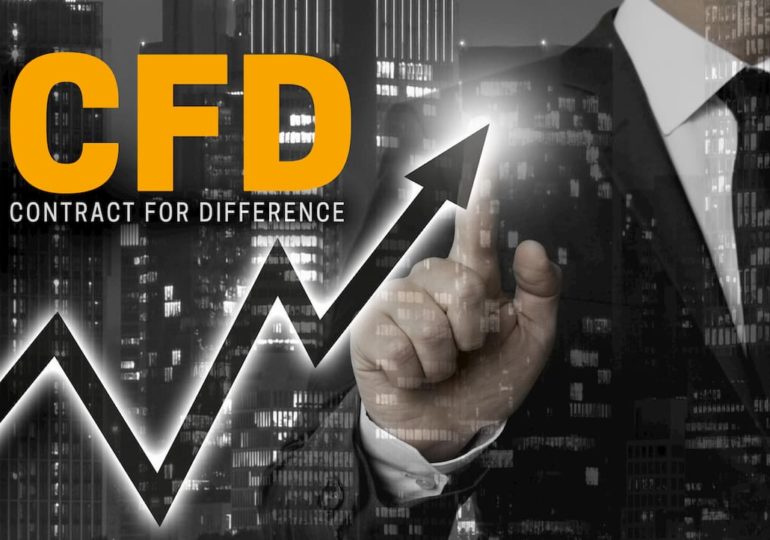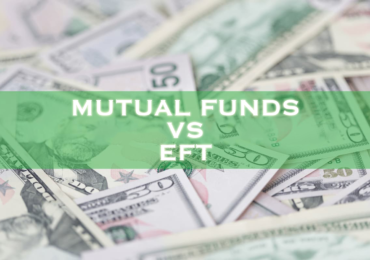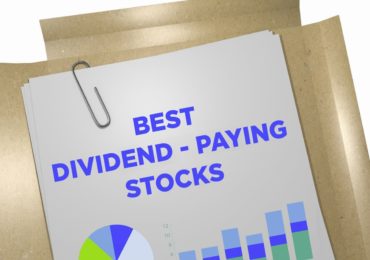What Is CFD? Should You Opt For CFD Trading?
The CFD, or ‘contract for difference’,offers investors and traders an opportunity to make profits out of price movements without possessing the underlying asset. It is a comparatively simple security calculated by the movement of assets between trade exit and entry, estimating only the price shift without consideration of the underlying value of the asset.
This is achieved through a contract between broker and client and does not use any forex, commodity, futures exchange, or stock. CFD trading provides a number of major edges that have increased the popularity of instruments in the past decade.
Understanding CFD Trading
CFDs let the traders trade in the movement of prices of derivatives and securities. Derivatives are financial investments, which are acquired from an underlying asset. Essentially, investors use CFDs to make price bets upon whether the price of a security or underlying asset will rise or fall.
CFD traders may gamble on the downward or upward movement. Traders who speculate an upward price movement will purchase the CFD, while those who expect a downward movement in price will sell an opening position.
Should the CFD buyer see the price rise of an asset, they will offer their stock for sale. The net difference between the sale price and the purchase price are netted together and is settled through the brokerage account of the investor. Contrastingly, if a trader sees that security’s price will fall, an opening sell position can be placed. In order to close the position, the trader must buy an offsetting trade. The net difference of the loss or gain is settled through their account in cash.
CFD Transactions
CFDs can be used to trade several assets as well as securities including exchange-traded funds (ETFs). Traders will employ these products to predict on the price movements in commodity futures contracts like corn and crude oil. These contracts are standardised contracts or agreements with obligations to sell or buy a specific asset at a predetermined price with a future expiration date.
Although CFDs let investors trade in these movements, they aren’t future contracts by themselves. CFDs trade like other securities with sell and buy prices but do not carry expiration dates with preset prices.
CFD trading is a kind of over-the-counter (OTC) trading that involves a network of brokers who organise the market supply and demand for CFDs and set prices accordingly. In simpler words, CFD trading is not done on major exchanges like NYSE or New York Stock Exchange. CFDs are tradable contracts between brokers and clients, who are transacting the differences in the starting price of the trade and its worth when the trade is reversed or unwound.
Advantages Of CFD’s

Higher Leverage
CFDs offer higher leverage when compared to traditional trading. Standard leverage is subject to regulation in the CFD market. It was once as low as a 2% margin (50:1 leverage), but is not defined in a range of 3% (30:1 leverage), and could go up to 50% (2:1 leverage). Lesser margin requirements imply less capital outlay for an investor/trader and higher potential returns. However, swelled leverage can also increase losses.
No Borrowing Stock Or Shorting Rules
Some markets have regulations that prevent shorting, needing the trader to obtain the instrument prior to selling short or have various margin requirements for long and short positions. CFD instruments can be shorted without borrowing costs at any time as the trader does not own the underlying asset.
Global Market Access From Single Platform
Many CFD brokers provide products in the major markets of the world, allowing around-the-clock access. Investors or traders can thus trade while sitting anywhere, at any time.
Professional Execution With 0ut Fees
CFD brokers provide several of the same order options as traditional brokers including limits, stops, and contingent orders such as “if done” and “one cancels the other”. Brokers may offer guaranteed stops for a fee for this service or recoup it in another way.
Most of the brokers do not charge fees or commissions of any kind and make money when the traders pay the spreads. To purchase, a trader has to pay the ask price, and to short/sell, the trader has to pay the bid price. This spread can be large or small depending on the volatility of the asset concerned. Fixed spreads are mostly available.
No Trading Day Requirements
Certain markets need the minimum capital amount to day trade or put limits on day trade amounts that can be made within specific accounts. The CFD market is not limited by these restrictions and every account holder is allowed to day trade if they wish. You can open accounts for as low as $1,000, although $5,000 and $2,000 are common requirements for minimum deposit.
Kinds Of Trading Opportunities
Brokers currently offer index, stock, currency, commodity, treasury, and sector CFDs so speculators in different financial instruments can trade CFDs as a substitute to exchanges.
Disadvantages Of CFD’s
Traders Pay The Spread
While CFDs offer an appealing substitute to traditional markets, they also have potential pitfalls. For one, needing to pay the spread on exits and entries remove the potential to gain from small moves. So, while traditional markets expose a trader to regulations, fees, higher capital requirements, and commissions, CFDs trim traders gain through spread costs.
Weak Industry Regulation
The CFD industry is not regulated and the credibility of the broker is based on longevity, financial position, and reputation rather than liquidity or government standing. You must investigate a broker’s background if you are planning to open an account with them.
Risks
CFD trading requires close monitoring as it is fast-moving. There are liquidity margins and risks that you need to maintain and, if you are not able to cover reductions in values, your position may be closed.
The Bottom Line
Advantages of CFD trading include easy access to global markets, lower margin requirements, no fuss, and no day trading rules. However, high leverage inflates losses when they happen, and paying a spread to exit and enter positions can be expensive when massive price movements do not occur. Therefore, before entering this market, analyse well if you are willing to take the risks.












Hey there! Someone in my Facebook group shared this website with us so I came to check it out.
I’m definitely enjoying the information. I’m bookmarking and will be
tweeting this to my followers! Excellent blog and wonderful design and style.